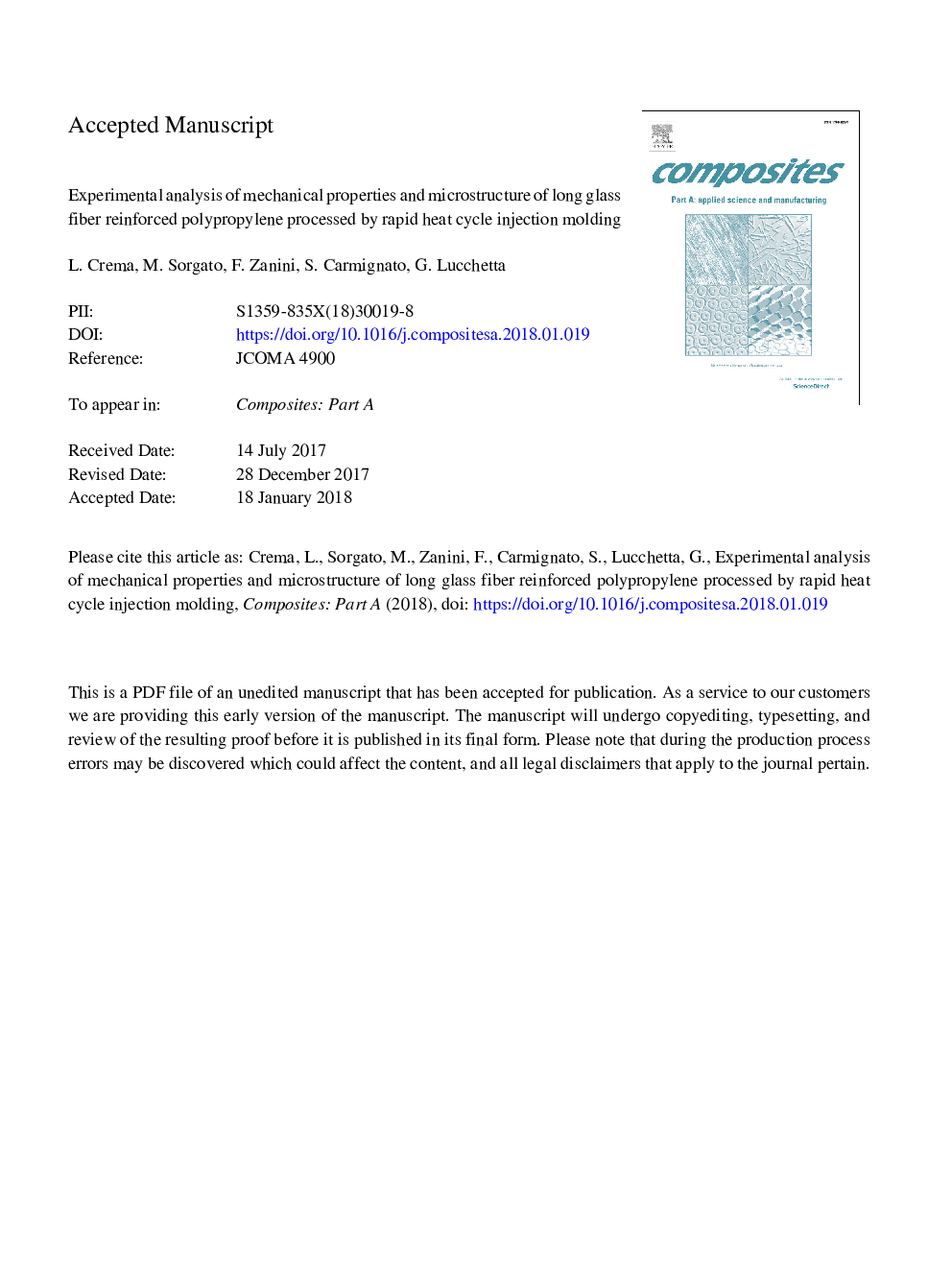| Article ID | Journal | Published Year | Pages | File Type |
|---|---|---|---|---|
| 7889775 | Composites Part A: Applied Science and Manufacturing | 2018 | 29 Pages |
Abstract
Rapid heat cycle molding (RHCM) of reinforced thermoplastics is increasingly used in order to obtain high surface quality on structural parts. In this work, the effect of RHCM on both microstructure and ultimate tensile strength of polypropylene reinforced with 30â¯wt% long glass fibers was investigated. Micro X-ray computed tomography was employed to allow a non-destructive assessment of fibers orientation and internal porosity, while optical measurements were used to evaluate the residual fibers length distribution. The experimental results indicated that an increase of injection velocity always results in a decrease of ultimate tensile stress, due to higher fiber breakage. This effect is partly attenuated at low mold temperature, due to an increase of fiber orientation. On the other hand, when using RHCM an increase of injection velocity results in a greater decrease of ultimate tensile stress, due to the reduction of both fiber length and fiber orientation.
Related Topics
Physical Sciences and Engineering
Materials Science
Ceramics and Composites
Authors
L. Crema, M. Sorgato, F. Zanini, S. Carmignato, G. Lucchetta,
